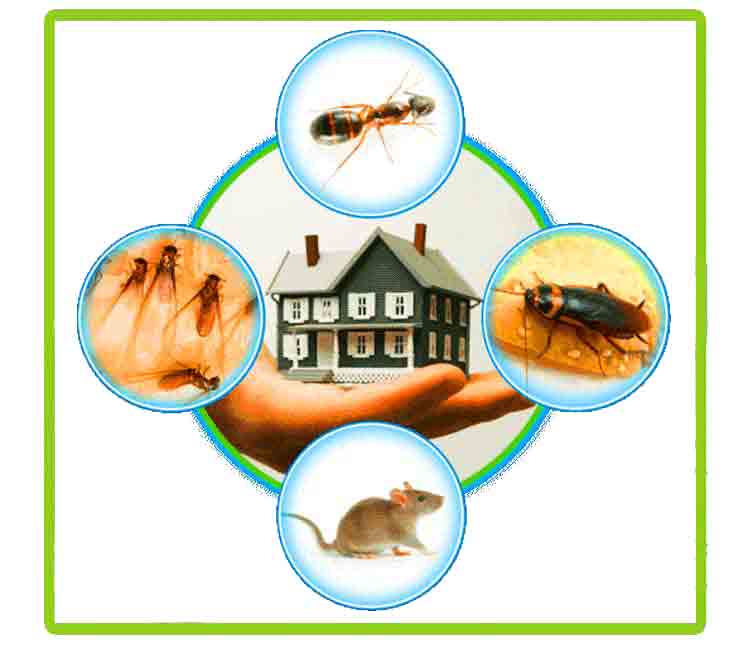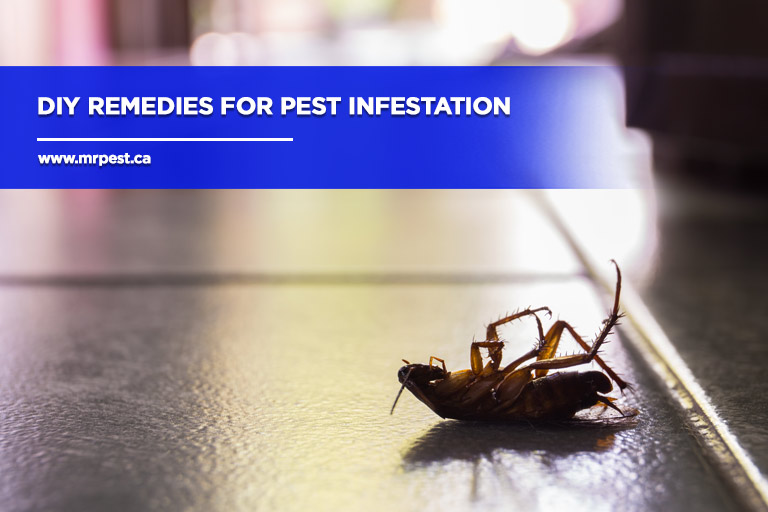Safe and Reputable Parasite Control for Lasting Protection
Reliable bug administration calls for a diverse method that stabilizes ecological honesty with the requirement for efficient pest reductions. The subtleties of these methods might not be quickly clear, prompting a more detailed examination of the practices that can lead to lasting insect control end results.
Understanding Bug Control Techniques
Parasite control includes a selection of methods focused on handling and removing undesirable bugs and rats that can intimidate both health and wellness and home. Recognizing these methods is critical for effective insect monitoring.
The primary classifications of pest control methods include mechanical, organic, and chemical strategies. Mechanical methods include physical obstacles and traps to stop bug access and capture undesirable species. As an example, making use of displays on home windows or using sticky catches can significantly lower parasite populations without introducing hazardous compounds.

Chemical insect control is frequently the most identified method, utilizing chemicals to get rid of bugs. These chemicals can be reliable however need to be utilized with caution to stay clear of negative effects on non-target varieties and the setting.
Advantages of Eco-Friendly Solutions
Exactly how can eco-friendly remedies change pest control techniques? The adoption of eco-friendly parasite control techniques offers many benefits, dramatically boosting the efficiency and safety and security of bug management (exterminator coquitlam). These solutions use all-natural ingredients, reducing the dependence on hazardous chemicals that can posture risks to human health and wellness and the environment. This shift not just safeguards pet dogs and families however additionally reduces the possibility for soil and water contamination.

Another advantage is the positive effect on regional biodiversity. Green remedies are made to target details parasites while protecting useful pests and wildlife, promoting a balanced ecological community. This strategy lines up with the growing consumer demand for sustainable methods, improving the track record of parasite control companies.
Integrated Bug Administration Techniques
The implementation of eco-friendly remedies naturally leads to the fostering of Integrated Bug Administration (IPM) strategies, which better improve pest control efficiency. IPM is an all natural strategy that integrates numerous techniques to manage bug populations while decreasing ecological impact. This technique highlights the usage of biological, social, mechanical, and chemical controls, guaranteeing a sustainable and well balanced technique of parasite management.
One essential element of IPM is the extensive analysis of insect task and environmental conditions. By monitoring parasite populations and recognizing their life cycles, professionals can apply targeted interventions that interrupt the pest's environment or lifecycle, reducing reliance on chemical pesticides. Furthermore, social practices such as plant turning and habitat control can dramatically diminish bug facility and recreation.
Another important element is the usage of organic control agents, such as useful bugs or microbes, which can normally suppress insect populaces. When chemical applications are essential, IPM focuses on the use of low-risk pesticides and applies them precisely, reducing direct exposure to non-target microorganisms and humans.
Integrating IPM methods not just boosts insect control performance however additionally promotes a much safer environment, straightening with the expanding need for lasting practices in bug management.
Safe Practices for Property Owners
Comprehending the value you could try here of secure methods in insect control can empower homeowners to efficiently manage pest issues while safeguarding their wellness and the atmosphere. Executing preventive measures and safe methods is crucial in minimizing direct exposure to unsafe chemicals.
Homeowners need to first assess their atmosphere for conditions that bring in parasites, such as standing mess, water, and food waste. Consistently cleaning and securing entrance factors can deter parasites from invading the home. Making use of natural deterrents, such as necessary oils or diatomaceous planet, can supply reliable options to chemical pesticides.
When chemical therapies are necessary, house owners should choose items that are specifically identified as secure for domestic usage. It is necessary to comply with application guidelines thoroughly to prevent overexposure. In addition, using targeted treatments in areas where parasites are determined, instead of blanket splashing, can considerably minimize chemical usage.
Last but not least, maintaining open interaction with bug control professionals is important. Homeowners should make inquiries about the security of products utilized and demand eco-friendly options whenever possible. killer bug By adopting these safe practices, property owners can develop a much healthier living environment while efficiently handling insect problems.

Tips for Long-Term Protection
Establishing a pest management approach that stresses lasting defense can substantially boost the performance of the risk-free methods previously discussed. To attain this, home owners need to apply routine assessments of their home, concentrating on hidden locations such as attics, basements, and crawl rooms. Early discovery of insect activity is critical in stopping invasions from taking hold.
These techniques minimize attractants that draw insects right into the home. Sealing entrance factors, such as fractures around doors and windows, can successfully obstruct potential bug access.
Landscaping must additionally be considered; maintaining plants cut and maintaining a distance between plant life and the home minimizes hiding spots for bugs. Making use of natural deterrents, such as necessary oils or diatomaceous planet, can further dissuade invasions without considering severe chemicals.
Finally, teaming up with a professional bug control service for routine examinations can provide an additional layer of protection. These specialists can offer tailored recommendations and advanced treatments, guaranteeing that your home stays secured versus parasites in the lengthy term.
Final Thought
Finally, reputable and risk-free bug control needs a diverse technique that stresses eco-friendly methods and incorporated parasite monitoring. By applying all-natural deterrents, carrying out routine assessments, and preserving appropriate sanitation, residential property proprietors can substantially minimize insect populaces while securing advantageous insects and the setting. Partnership with professional pest control solutions improves the efficiency of these approaches, ensuring customized services that provide long-term security and satisfaction versus future invasions.
Effective insect management calls for a multifaceted approach that stabilizes ecological honesty with the need for effective important source insect reductions. The adoption of environmentally friendly parasite control techniques supplies many benefits, significantly improving the effectiveness and security of pest administration.The execution of environment-friendly solutions normally leads to the adoption of Integrated Bug Management (IPM) methods, which further improve parasite control efficacy. exterminator coquitlam. By keeping an eye on bug populations and recognizing their life cycles, specialists can carry out targeted treatments that disrupt the bug's environment or lifecycle, decreasing dependence on chemical pesticides.In conclusion, risk-free and reliable parasite control requires a diverse technique that emphasizes environmentally friendly approaches and incorporated pest management